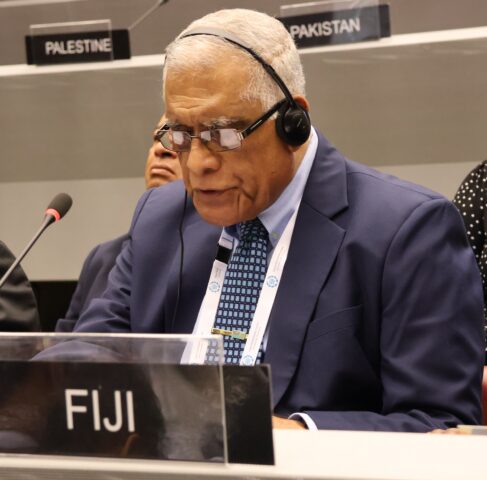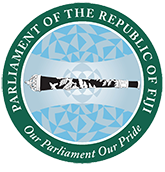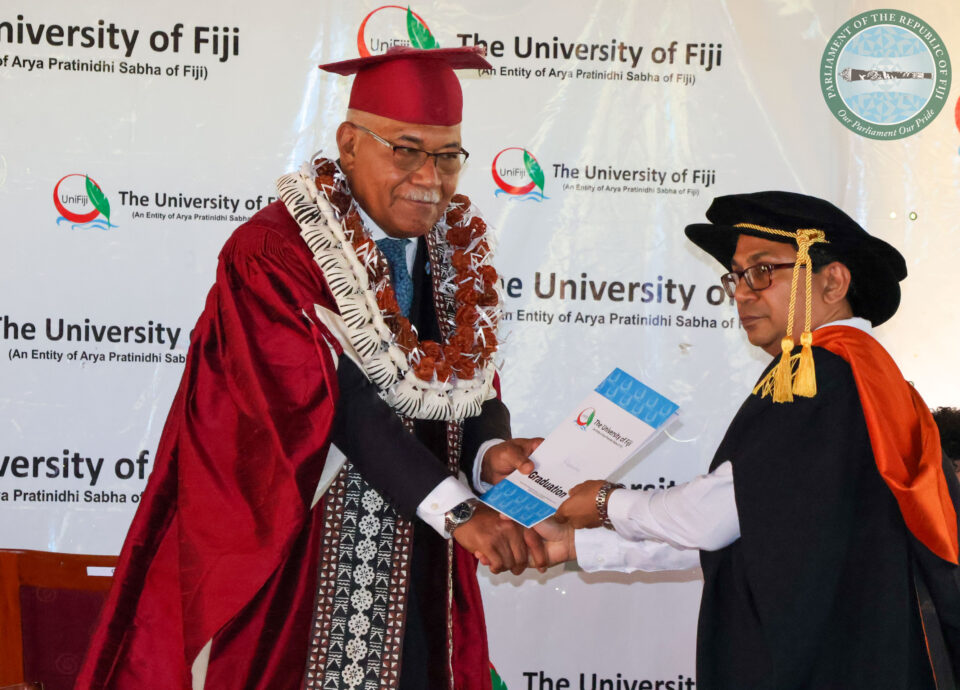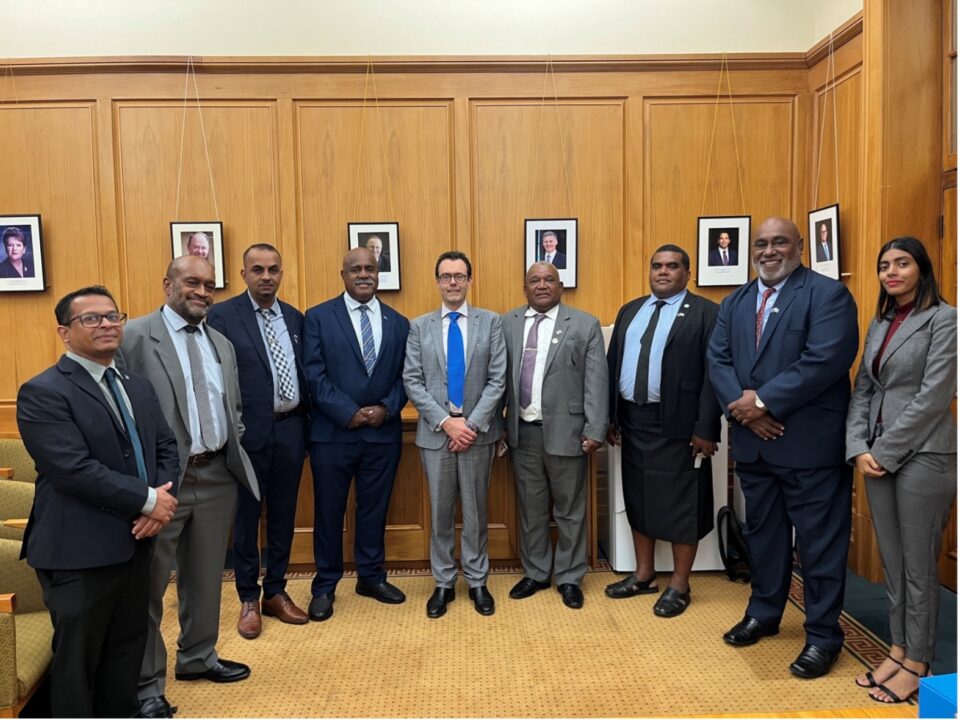Speaker’s Address at the 148th IPU Assembly – Parliamentary Diplomacy: Building Bridges for Peace and Understanding

148th IPU Assembly – Geneva, Switzerland
Parliamentary Diplomacy: Building Bridges for Peace and Understanding
- Honourable Chair and President of the 148th Assembly
- Honourable Speakers and Members of Parliament
- Distinguished Guests
- Ladies and Gentlemen
It is indeed a great pleasure and an honour, as the Speaker of the Fijian Parliament, a small island State in the Pacific, to address this august Assembly of the global community of Parliaments and Parliamentarians.
I strongly agree with the notion that building bridges for peace and stability is not only about resolving or preventing conflict, but rather it is about understanding each other and creating social inclusion – an important condition for progressive and sustainable livelihoods for our people. Individuals and communities, irrespective of their gender, age, ethnicity and so forth, must be given all the opportunity to participate in society.
Parliaments and Parliamentarians therefore have a fundamental role in fostering dialogue, taking legislative action and effective oversight to ensure social inclusion. We have the powers to address polarisation along political, socio-economic, gender, ethnic, cultural, and religious lines.
I wish to share some actions being undertaken by the Fijian Parliament as part of our wider national efforts to build a peaceful and harmonious society.
The development of our small island state has been adversely impacted by political upheavals in our post independence period. In 2014, Fiji returned to Parliamentary democracy after 8 years without a Parliament and with citizens’ trust in governance institutions being fragmented, fragile and at an all-time low.
We are now on a path of strengthening Parliamentary democracy and restoring peoples’ trust in our Parliamentary system, taking incremental but decisive steps towards social inclusion and peacebuilding in our communities.
In September last year, Parliament passed a motion to establish a Truth and Reconciliation Commission to facilitate truth-telling, dialogue, and reconciliation on our past political conflicts since 1987 which included four coups and dictatorial Governments. We believe that Parliament must take the lead role in national healing and reconciliation.
Since this current Parliament first convened in December 2022, as Speaker, I have encouraged an inclusive and participatory process, whereby Parliamentarians from both the Government and Opposition, are actively involved in inter-Parliamentary engagements and bipartisan approaches.
A good example is our Leader of the Opposition now being part of our regular delegation to all IPU Assemblies and his election as Chair of the Small Island Developing States Parliamentary Group at the 147th IPU Assembly. We are encouraging stronger bipartisanship on matters critical to Fiji’s nation building and sustainable development at all levels, national, regional and international.
In 2023, we re-introduced the use of the vernacular in Parliament making Parliament more accessible and inclusive to all Fijians and ensuring that their participation in Parliamentary processes is not hindered by language barriers. Parliamentarians have the option of speaking in their own vernacular, giving representatives the ability to get their information and messages across to their constituents, and allowing more non-English speaking citizens to better understand Parliamentary debates and procedures. This has been made possible through the strengthening of our e-Parliament initiative which also supports our civic engagement work.
Honourable Chair, Fiji as a small island developing State (SIDS) in the large Pacific Ocean, is facing the rising challenges imposed by the adverse impacts of climate change, with rising temperatures and sea levels. In 1992 at the Rio Global Summit in Brazil, we as SIDS, were accorded the global recognition of being the most vulnerable group of 39 countries in the UN family of nations. Since Rio, the existential threats have exacerbated, and its impacts have not only adversely affected SIDS but also by other developing countries with small population and economies, threatening our peaceful existence.
Honourable Chair, you may wonder why am I bringing this critical issue into our discourse today?
Climate change can be the biggest threat to peace and security. It is a global problem that calls for global solutions. We are therefore convinced that Parliaments and Parliamentarians through the IPU have a critical role in our global discourse to advocate against the threats of Climate Change and help shape the adaptation and resilience-building narratives into our respective countries and member states of the IPU’s long-term sustainable development.
The Fijian Parliament therefore believes in a stronger inter-Parliamentary dialogue on this matter, including conflict prevention and peacebuilding.
In this context, beginning here in Geneva, we seek your support in investing time and resources to effectively address the scourge of climate change. Our inter-Parliamentary commitments with the IPU, the CPA, and our regional Parliamentary networks in the Pacific with Australia, New Zealand, and our Oceania neighbours are useful platforms to contribute to our collective global efforts.
Despite, being a small Parliament, Fiji values this commitment from all our IPU members and concurs that Parliaments play a legitimate role in inter-Governmental efforts to promote conflict prevention, peacebuilding, and long term security at all levels.
In conclusion, I remain adamant that when Parliaments and Parliamentarians take well defined concerted actions at home to foster dialogue and facilitate social inclusion, they are in a stronger position to do the same at the international level, where Parliamentary democracy can contribute to peacebuilding and security.
Honourable Chair, the role of Parliaments and Parliamentarians are increasingly moving beyond traditional legislative, oversight and representative functional roles into broader responsibilities at all levels. Through Parliament initiated dialogue, diplomacy and innovative peacebuilding initiatives, we can advocate with our national Governments, to effectively address the scourge of climate change, for our long-term sustainable livelihoods and developments.
I thank you for your attention.







